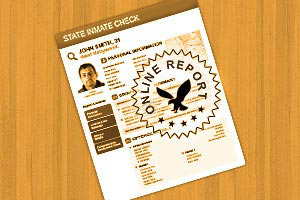Wisconsin Public Records
The Wisconsin State Records website offers the public a means to gather, obtain, and examine public records. This ensures that Wisconsin residents have access to this information in accordance with the Wisconsin Open Records Law. This act states that all government-generated information and records are available to the public.
The main goal of this website is to offer all members of the general public the ability to access Wisconsin state public records easily, efficiently, and concisely, without requiring a reason or any personal information, excluding records made confidential by constitutional, statutory, or court law.
Wisconsin State Records presents all available public records, including arrest records, court records, vital records, and over 50 million additional public records.
Are Wisconsin Records Public?
Yes. According to the Wisconsin Open Records Law, most records generated by government agencies are considered public and open to interested persons. Anyone seeking these records may submit an official request to the record custodian at the government agency after fulfilling specific request requirements. Examples of available Wisconsin public records include inmate records, bankruptcy records, and court records. Wisconsin divorce records and sex offender information are also considered public. Individuals in need of any record considered public can carry out a public data search.
The Open Records Law describes public records as any material containing information created or kept by a public authority, regardless of its characteristics or physical form. Public records include, but are not limited to, handwritten or typewritten documents, photographs, recordings, charts, tapes, and data on electronic storage devices.
Wisconsin law states that all interested persons are entitled to the “greatest possible” amount of information regarding government affairs, and the official acts of employees and officers representing the government. The law also states that each agency must consider it an essential part of its functions to provide interested requesters with public information (Wis. Stat. § 19.31). Based on the Public Records act request, “members of the public have a right to survey and make a copy of records accessible to the public under Wisconsin’s Public Records Law,” Wis. Stats §§ 19.31-19.39 DOA Open Records Requests. While some records can be obtained from free public data search, certain records can only be obtained at a fee.
How Do I Find Public Records in Wisconsin?
The Wisconsin Open Records Law ensures that all requesters can inspect or get copies of non-confidential public records. Interested persons must contact public agencies that create or maintain these records to inspect or obtain copies. Agencies usually offer varying request methods, specific application requirements, and submission options. Regardless, record seekers may use the steps below when unsure of how to do a public records search in Wisconsin:
- Figure out the desired record type
Wisconsin public records cover a wide range of options. Several agencies maintain different types of records depending on their statutory functions and interagency relations. Interested persons must first decide on the required type of information to determine that the record is open to public disclosure under the Wisconsin Open Records Law.
- Identify the custodian agency
Deciding on the type of record helps the requester find the relevant custodian agency. Public entities such as sheriff’s offices maintain records, including arrest records and reports on incidents under its purview. Similarly, persons seeking Wisconsin death records must contact the Register of Deeds Office in the relevant county or the Wisconsin Vital Records Office to access vital records.
- Create a request
A request must reasonably describe the requested record. According to Wis. Stat. § 19.35(1)(h), any request not limited to a specific subject matter and length of time is not considered sufficient. Furthermore, Wisconsin does not require that requests be written. However, record seekers must note that in the event of a denial, no one can begin an action to enforce an oral request.
- Submit the request
Requesters may submit requests that properly identify desired records. In most cases, public agencies offer in-person, fax, mail, phone, and online options. Requests may also cost varying fees, depending on the preferred method of submission and delivery, type of record, and the volume of the record.
Other specifics may also apply. For instance, mail requests usually require self-addressed and stamped envelopes. Online requests may require credit or debit cards and sometimes cost additional transaction or processing fees. Furthermore, certified records may cost more than plain copies and may be unavailable to phone, fax, and online requesters.
Using Third-Party Sites
City Records
Public city records may also be accessible from third-party websites. These non-government platforms come with intuitive tools that allow for expansive searches. Record seekers may either opt to use these tools to search for a specific record or multiple records. However, users will need to provide enough information to assist with the search such as:
- The name of the subject involved in the record (subject must be older than 18 or not juvenile)
- The address of the requestor
- A case number or file number (if known)
- The location of the document or person involved
- The last known or current address of the registrant
Third-party sites are not sponsored by government agencies. Because of this, record availability and results may vary.
Public Records
Public records can also be accessed from third-party websites. These third-party public records aggregate websites offer search services that are non-geographically limited, making the search result expansive and typically straightforward. However, users will need to provide enough information to assist with the search, such as:
- The name of the subject involved in the record as long as the subject is not a juvenile
- The last known or location of the record subject
Third-party public records search websites are not government-sponsored services. Therefore, the availability and accuracy of results can vary.
How Do I Look Up Public Records in Wisconsin for Free?
The Wisconsin Open Records Law does not have provisions for inspection fees. Consequently, persons looking up public records for free can ask the custodian agency to permit an inspection. Other options, including requesting physical copies, may cost copy or search fees. Records accessible by members of the public can also be requested from the county clerk’s office or the county recorder’s office.
Another option is to visit an online database; depending on what one is seeking, individuals seeking data could conduct a free public record search on a selected person. Some agencies maintain internet registries for access to free public records Winsconsin agencies generate or maintain. An example is the searchable database compiled by the Wisconsin Department of Corrections, containing information on registered sex offenders in the state. Interested persons can also conduct a Waukesha County public records search for non-confidential county court records.
Wisconsin public records were created from as far back as 1790 and include information from 72 counties and 1,851 municipalities. Digitization has become the standard over the past 30 years, allowing governmental and third-party websites to offer these records online with increased reliability. This ensures Wisconsin abides by the commitment of the United States of America to remain a fair and just society for all.




